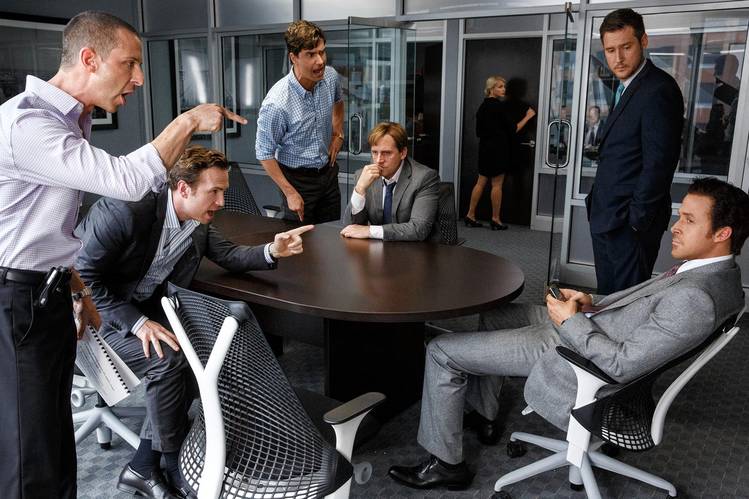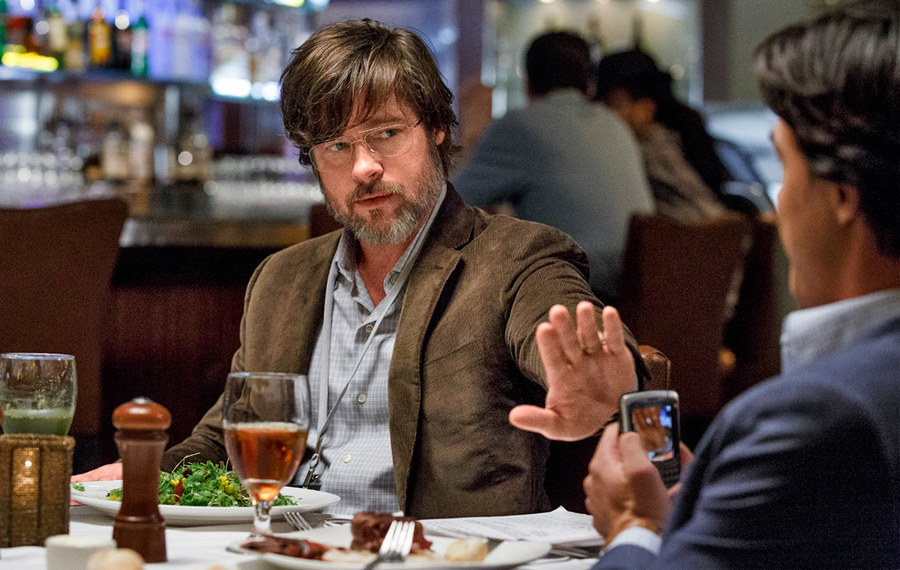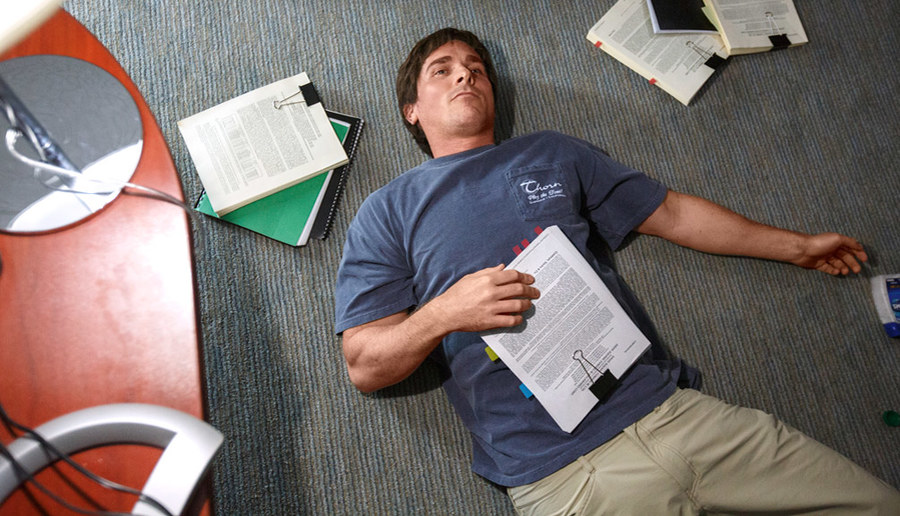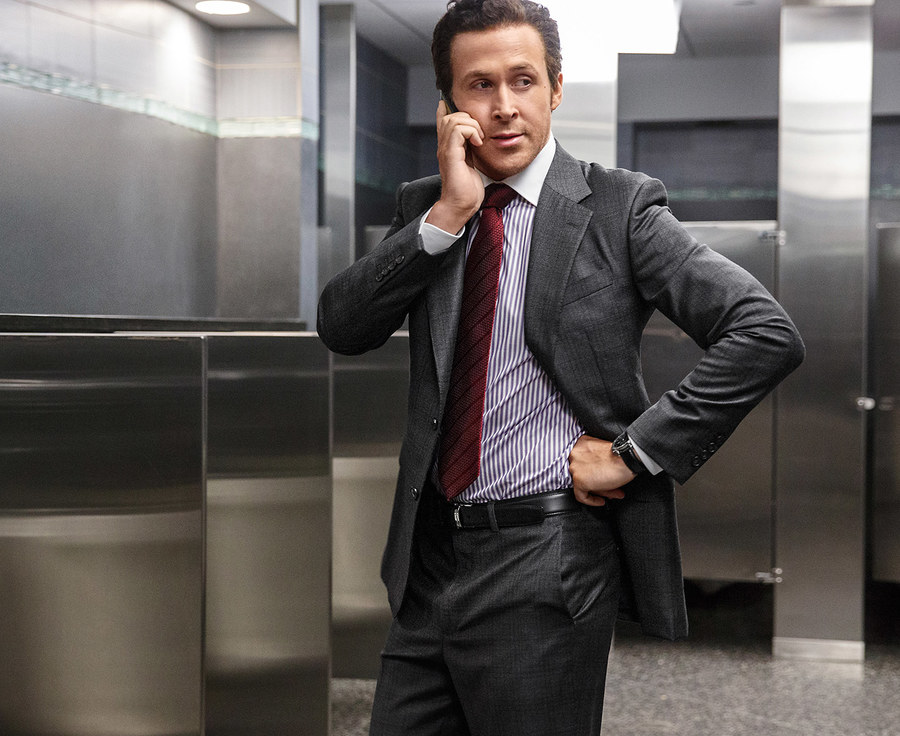Smartest Movie of 2015 The Big Short Movie Explained
So I’m a little late to this movie seeing as though it came out on the 23rd of December, and I only just watched this movie a couple nights ago. But I have to say, that the movie, The Big Short, definitely was the smartest movie of the year for 2015. And you know what, you guys aren’t seeing it, because you are all going to see The Force Awakens for the 17th time. (Can’t particularly blame you, I’ve seen it 6 times now.) And you can watch it right here:
But hold on, I’ll get to The Big Short in a second, but before I do, can I just talk a little about me? I mean, sheesh. You guys, this is MY BLOG not yours. It’s not just all about you! heheh.
Anyway, about the time of the Facebook IPO, (when was that? ah, May 18th, 2012, sometimes I just adore the interwebs) I met a guy is big… big, big, in the world of stocks and bonds. It was a serendipitous meeting… I really don’t roll that way. He would introduce new stocks into the market from the firms doing the IPO and then he would take the risk off these company’s hands. And it was sort of an understood agreement between him and these firms, he would normally take losses for them, but he expected to get in on the really fat IPO’s occasionally so that he could make his money back and then some. So he was asking me to help him get built a solution that would track the ratio of wins to losses, and whether he was coming out ahead or behind on a relationship with a particular company or not. It was a fun gig. Never really turned out to be much. Would have been fun to do a couple more big ideas with him. But he helped me out a bit with start up I worked on, and I consider him a nice name to have in my rolodex. (What the flip is a rolodex anyway?)
Regardless, I am pretty verbose when it comes to email. Heck, I’m verbose here. Just imagine me in private, and just think for a second about how much more out of control I could get. Yeah. Anyway, I wrote him some enormous email at 2 am about the thing I was working on for him. And upon hitting send, no less than 5 minutes later he calls me and says, “Taylor, I’m just getting to know you, but you have to understand how email works”… (last I checked I was the tech consultant here, but ok, please, explain to me how email works.) “when you hit send, that email goes from you, to the local police, to the FED, on to the Securities and Exchange Commission, and then on to the Federal Prison system, and then to me. You just sent me an email and I immediately deleted it. Don’t do that again.” Now, I don’t have a TON of experience with these guys depicted in this movie, but I do have to say, that Brad Pitt, was the spitting image (in dress, mannerisms, phobias, facial ticks and gesticulations, etc) of my insider friend. As I was watching I was BAFFLED at just how perfectly he nailed my contact. It was almost bothersome he did such a good job with it.
Anyway, enough about me. So yeah, this is a super smart film, and so often, Hollywood talks down to the general public. Panders. It seems like most writers and directors who develop green-lit projects for mainstream viewers have zero trust or faith in us. And yet, The Big Short is here to make an entertaining and eye-opening movie about the Housing bubble. Could there be anything more boring and dry than the buying and selling of shorts against the housing market? Really?
And yet, The Big Short pulled it off.
Recently I reviewed the movie Concussion, which failed dramatically as a tell all dramatization of the NFL concussion controversy. That particular movie failed because it pulled all it’s punches at the movie. And while The Big Short didn’t get it all right (and I’ll get to that) it definitely got a lot of it right with regard to the financial housing bubble and more importantly it called out the banks and the truly depraved culture within the financial markets that allowed this to happen.
But the Big Short had, what Concussion didn’t have, which was a 4 Golden Globe nomination quality screenplay. A screenplay that not made bonds interesting. And it did so mainly by absolutely obliterating the fourth wall. We are talking about Selena Gomez dropping into the middle of the film just to explain what a Synthetic CDO is. A SYNTHETIC CDO!! (Don’t worry, if you didn’t get it, I’ll explain it again too… though not as interestingly I assure you.) And Margot Robbie (in a bubble bath) was brought in to explain what sub-prime means. There were others too. And each was done ala Ferris Bueller, with the actor talking straight down the barrel of the camera, to you. To me. Which is what made this movie so fascinating. It wasn’t fiction. It wasn’t a documentary. All the big banks in question were there. The names were the same. It was a really fascinating amalgam. I haven’t seen a movie like this in a very long time.
All that being said, I’m sure there were tons and tons of questions and details that were missed as you laughed your way through this hilarious, and heart felt movie. So I’ll be walking through the ins and outs about how the details of this movie worked and answering some of the more obvious questions about how this movie worked. And you know what, this is sort of spoiler material, in as much as the 2006/2007 news is also spoiler material. If you want to walk into The Big Short blissfully unaware, you may want to skip the rest of this review and just come back after you’ve seen it. But it won’t really ruin the movie either and could actually help you understand it more thoroughly when you see it initially. Your call.
The movie did a fantastic job of explaining a few of the more arcane problems and ideas creatively. I personally love this stuff. And have even downloaded and read through a couple Series7 books just for kicks and giggles. But maybe this isn’t your cup of tea. But
I loved Michael Lewis’ (who wrote the original book) comment about McKay’s script (who directed the movie) and how McKay managed to get it to work. He said,
“If you’d asked me a month ago when I first saw this thing how he did this, I still didn’t know. However, since you’re asking me today, after four Golden Globe nominations, I’m pretty sure it was all me. [Laughs.] So I think the big thing that I think he does in the movie that’s so important is he doesn’t condescend to the audience. He treats his audience as if they can understand it and makes them feel as if it’s OK if you don’t get quite all of it, because the gist of it is all you need.”
So, we really just need to know generally speaking about how a few basic things work to really understand. So knowing that and regardless of where you land on the financial-geek-continuum, here is how The Big Short explained junk bonds and how they worked originally utilizing an über-clever jenga analogy.
So, from this clip, probably one of the biggest aspects to understand and take away, is the concept of the tranche. Everything begins and ends with the tranche.
tranche
– tran(t)SH/
noun – a portion of something, especially money.
“they released the first tranche of the loan”
And it is these tranches that comprise bonds – tranches of different ratings and qualities of home mortgages. Triple A tranches all the way down the stack. “This is your basic mortgage bond. Alright? The originals were simple. They were thousands of triple A mortgages bundled together, guaranteed by the U.S. government. Modern ones are different. They are private, and they are made with layers of tranches. The highest level, triple A’s getting paid first… Sure, you can make more money buy B’s but sometimes they fail. Somewhere along the line these B’s went from being a little risky, to being dog shit. Where’s the trash?” You get the idea. But if you don’t understand the tranche, let’s just not go any further and call it a day. Hahah.
 sub·prime
sub·prime
ˌsəbˈprīm/
adjective – referring to credit or loan arrangements for borrowers with a poor credit history, typically having unfavorable conditions such as high interest rates.
“a coalition of subprime lenders”
As I mentioned before, the film also brought Margot Robbie in (who I absolutely adored in Z for Zachariah), put her in a bubble bath, gave her a flute of champagne and had her explain what sub-prime meant… basically the long and short of it, Margot: “When you think sub-prime, think shit.” These sub-prime tranches are ultimately what brought the entire house of cards down at the end of the day.
synthetic·cdo
– is a collateralized debt obligation (CDO) which, instead of being backed by assets such as bonds and loans like a standard CDO, it is backed by credit derivatives. These assets could include options and forward contracts.
And this is where my own brain just implodes. And I thought seriously about drawing a sketch about how the synthetic CDO works, but really? What you need to know is that CDOs are bad… and synthetic CDOs are bad to a factorial. Basically it allows bets to be made against the odds of bets actually coming to fruition. As Selena Gomez so eloquently pointed out while sitting at the roulette wheel… that it’s like a whole line of people betting on a bet, on a bet, on a bet. It exponentially increases the risk, to the tune of ‘about 20 to 1’ per the movie anyway.
The Big Short – A Few of My Favorite Quotes
Mark Baum’s Rabbi: “He is looking for inconsistencies in the Torah!”
Mark Baum’s Mother: “Well? …… Has he found any?
—
Michael Burry: “My one concern is, when the bonds fail, I want to be certain of payment in case of solvency issues at the bank.”
—
Jared Vennett – “That is my Quant, notice anything? Look at his face, his eyes…”
Mark Baum aside – (“Well, that’s very racist”)
—
Mark Baum – “Mortgage bonds are dog shit, CDOs are dog shit wrapped in cat shit.”
—
Mark Baum – “Listen, I want you to very calmly and very politely go back in there and tell the risk assessors to fuck off.”
—
Jared Vennett – “Tell me the difference between stupid and illegal and I’ll have my wife’s brother arrested…”
Random listener – “Hahah! Ouch! What? That was funny.”
Problems with The Big Short Book and Movie
I first found out about Michael Lewis by reading the book The Flash Boys… which I adored. I then found out he was a big deal in the financial whistle blowing community for a while now, so I found The Big Short and devoured it next. And after reading it I immediately started researching the story a little deeper and realized there was a section of the story that Michael Lewis completely missed out on. And that was the government’s culpability and involvement in the creation of this environment that has fostered the development of this roiling incoming mess.
Few know this, but it was the Clinton administration’s noble desire to extend affordable loans to low income family’s that began this snowball rolling down the hill. It was Alan Greenspan, as the Chairman of the Federal Reserve that continued to foster these loose loans. So this problem was much much bigger than a bunch of bankers and strippers that were the bad guys. The sad thing is, I’m sure Michael Lewis knows this. But he was reticent in both his The Big Short novel, as well as his Flash Boys books to call out the government for it’s role in allowing this to happen. He obviously prefers to go after the greedy banks that work hard to stretch, bend, and ultimately decimate the rules whenever they’ve been given the opportunity.
The Big Short Next Steps –
So I have read a ton of Michael Lewis over the past couple years. Just adore his investigative reporting style of writing. And these are the ones that I have read and enjoyed that you also might like to dig into. The books that are primarily financially related are Boomerang, The Big Short, Liar’s Poker, The Flash Boys and Panic: The Story of Modern Financial Insanity. There are more, but those are the ones I’ve read and will vouch for. You, no doubt, have seen the movie Money Ball, and that is an amazing book as well. I’m hopeful that Sorkin will eventually create a screenplay for Flash Boys, but that seems to be in doubt a bit these days.
I’ve also included below a fairly interesting interview that I pulled from for this article from NPR. It’s an interview between Lewis and McKays and a fascinating discussion about interpreting the book into a successful movie.






